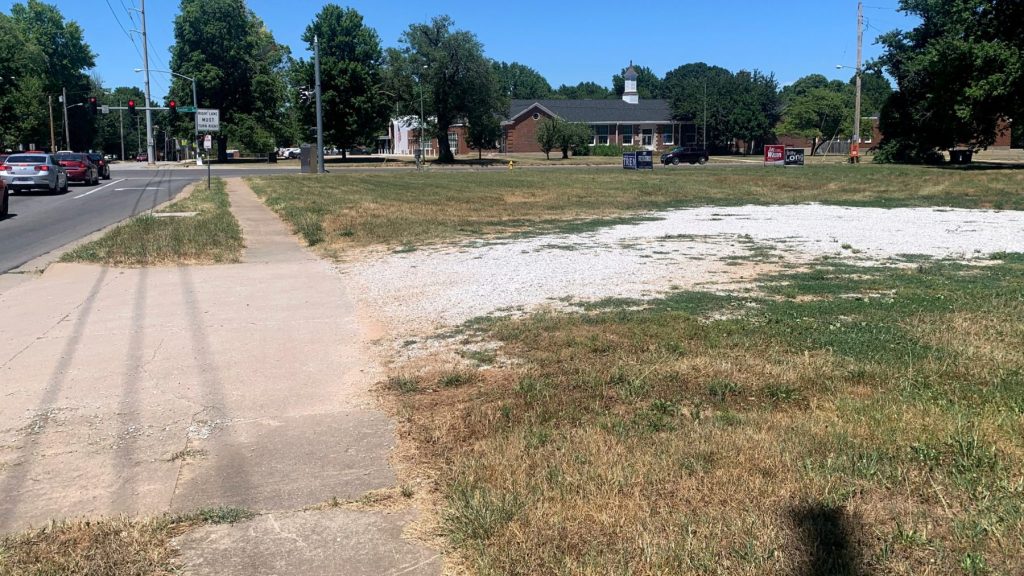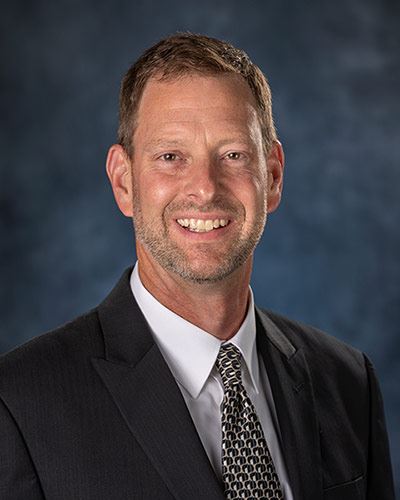A yearlong conversation around changes to conditional use permits, which provide the Springfield City Council with discretion in imposing conditions on special zoning permits, won’t end anytime soon.
The Planning and Zoning Commission voted 7-1, with Commissioner Bill Knuckles in opposition and Commission Chair Britton Jobe absent, to postpone a vote on an amendment to the procedure behind conditional use permits until December 2024.
Several commissioners expressed concern over the fact that the proposed changes would allow the City Council to impose new conditions, safeguards or restrictions on the use of a property without further consideration by the commission and ultimately, the public.
“If we approve apples and City Council approves oranges, it needs to come back to us,” Commissioner Dan Scott said.
What is a conditional use permit?
A conditional use permit is a tool for both the Planning and Zoning Commission and the City Council to use in determining if a proposed location and special use for a development could create a “deleterious impact upon the health, safety and welfare of the public.” It essentially provides an exception to the zoning code, allowing components of a development that would normally not be permitted in an area.
It is otherwise defined in the Springfield Land Development Code as a means to “determine whether the proposed location of the use or structure is appropriate and whether it will be designed and located so as to avoid, minimize, or mitigate any potentially adverse effects upon the community or other properties in its vicinity.”
Permit applications must describe the conditional use, illustrate how potential adverse effects will be prevented and undergo public hearings, among a host of other requirements.
Speed of the permitting process
The conversation began in the City Council Plans and Policies Committee in November 2022, to establish an “appropriate and expedient process” for the procedure in granting or denying conditional use permits.
While the commission only provides recommendation to the City Council, which has the ultimate decision-making authority, the conditions City Council imposes send applications back to square one under current city code.

Springfield Planning Manager Bob Hosmer said this is because the language of the code isn’t very clear, and emphasized that the proposed amendment didn’t change the City Council’s authority. For example, if the planning commission voted against the conditions imposed by the City Council, council members could approve them anyway. Under the proposed addition to the city code, the commission can continue to impose its own conditions in its recommendations, but the City Council can modify and remove them as it sees fit.
Additionally, Hosmer said the City Council could impose additional requirements on other kinds of zoning without the cases returning to the commission, and that the amendment to the conditional use permit procedure would create more consistency in the city code.
While no threshold is spelled out in the proposed amendment, Hosmer said the City Council, at its discretion, could remand a case to the commission if the required changes are significant enough. This could mean city council members might approve an application with the condition that the developer closes a driveway, but may send a case back to the commission if the council determines the zoning is not appropriate.
Hosmer said city government staff could draft language for the legal threshold at the commission’s direction.
“The planning development process has eight criteria. You know, if you're going 5% over the land use, if you're going — there's all these metrics that you have to really give council,” Hosmer said. “Say — if I go below — if I go above 5%, or by increasing, substantially changing the traffic circulation, then that would go back.”
Controversial coffee shop repeatedly sent back to P&Z, repeatedly denied

Hosmer pointed to the back and forth of a conditional use permit for a planned 7 Brew Coffee shop at the corner of Jefferson Avenue and Sunshine Street, which received three recommendations of denial from the planning commission and two actual denials from the City Council before eventually being approved.
“I think part of it is, when it gets sent back, it does delay the process, you know, for the applicant,” said Brendan Griesemer, the interim director of the city’s Department of Planning and Development. “So that's one piece, is it does drag that out.”

Commissioner Bruce Colony said describing the procedure as being dragged out is “a little brutal,” and said that conditions should still be reviewed and discussed in a public forum at a commission meeting.
“Let's say case goes through, this body has recommended denial, it goes to City Council and they decide, ‘Well, if they add a picnic table and a bush, it'll be okay, right?’” Colony said. “Basically, what this commission didn't like was that there wasn't a bush and there wasn't a picnic table, so we're just gonna go ahead and add it at the meeting.”
Hosmer said cases being sent back to the commission was rare, estimating it only happens a couple of times a year. Lebeck suggested it was infrequent enough to not require a “significant change in the process.”
Colony agreed with Lebeck.
“I don't think this probably happens often enough that we're really greasing the wheels of development to get things done that much quicker,” Colony said. “If you can convince me that this happens all the time, and this is a tool that the City Council really needs in order to keep our city moving on a progressive trajectory, then I’d listen to alternating opinions.”
Commissioner Scott said that rather than find reasons why a case should be sent back to the commission, the City Council should identify reasons not to, such as a typo in zoning documents — the sort of mistake Hosmer acknowledged has caused cases to be remanded in the past.
Because conditional use permits are contingent on more details than other, more traditional rezoning applications, Lebeck said, “there’s a reason to need an additional layer of protection.”
“It's not like zoning because, again, we're saying it kind of works in the zoning, but with these additional levels of stuff, then we're going to park this Chick-fil-A of coffee on Sunshine in a residential district,” Lebeck said.
Public input limited under amendment

In addition to the concern around how the amendment would restrict further recommendations by the commission on the conditions imposed by the City Council, commissioners said that it narrowed the opportunity for public input.
Public hearings are held on conditional use permit applications at Planning and Zoning and City Council meetings. If a case is sent back to the commission with new conditions, additional public hearings are held.
“The folks that came to speak about it at Planning and Zoning may or may not also go to the City Council meeting(…)It should be heard by the same people in the neighborhood that heard it the first time and it should be discussed and voted on by this body,” Colony said.
In determining how the proposed changes be altered to have conditional use permit conditions proposed by the City Council be considered by the commission, whether through thinking up reasons something not be remanded or establishing a criteria, the commission postponed a vote on the measure to the first Planning and Zoning Commission meeting of December 2024.
If the commission had voted against the amendment, it would have moved to City Council and could have been adopted.
“I'm uncomfortable with the fact that, even though I'm not going to be on this commission forever, the crystal ball says we shouldn't, today, dilute the purpose and power of this commission by this action,” Scott said. “That's just not for us to do.”

